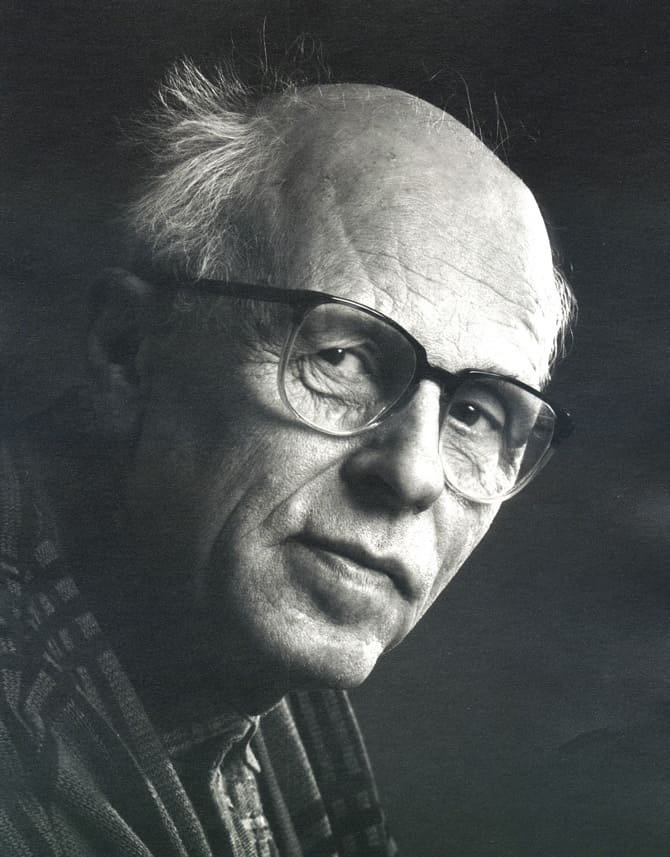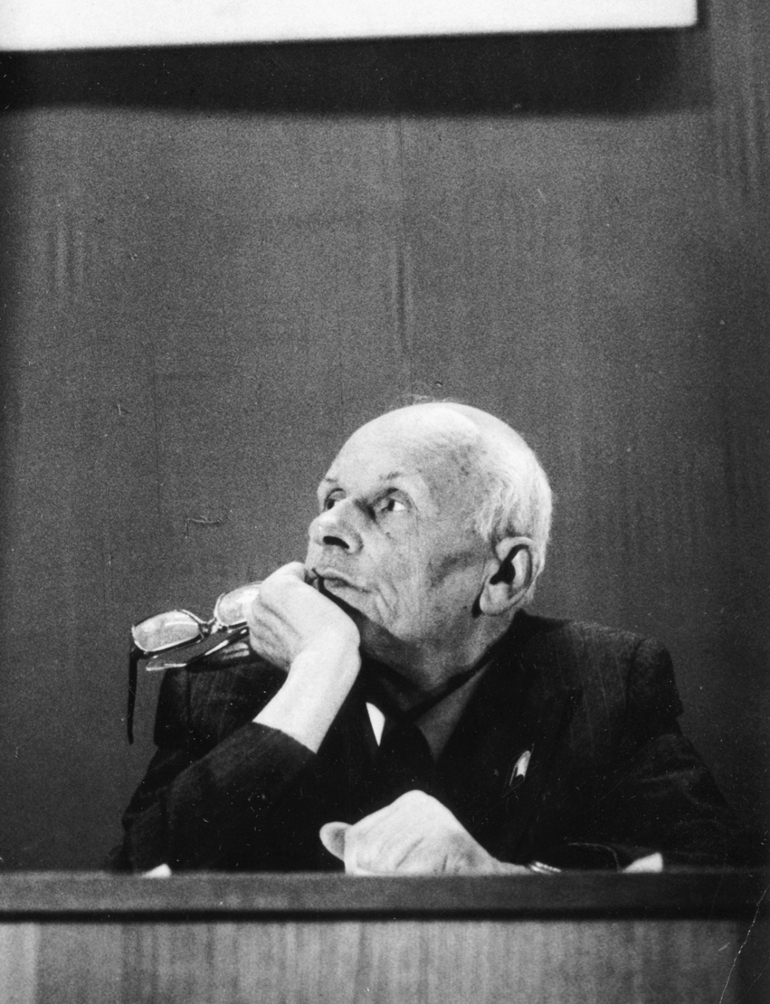Andrei
SAKHAROV
Renowned physicist, winner of the Noble Peace Prize

I bow to futurology with its desire to peek into the future
I taught myself to read when I was four practicing on street signs and ship names, then my mother helped me to improve.*
My father taught physics and authored several physics books. He was best known for his book of problems that was published over and over again but the last edition came out in 1973, censored because my name was banned from publication.
When working on the bomb, I had two conflicting feelings from the start. On the one hand, the work we were given was extremely important for the country in order to maintain the balance of power in the world. On the other hand, I had a nagging feeling that it was all too horrible and frightening.
I bow to futurology with its desire to peek into the future. I wrote The World in Half a Century in 1974. I talked about dividing Earth into two areas. One would be industrial and residential and the other would be a vast recreational area with pristine protected nature. I talked about extensive computerisation of everyday life, production and science, about a worldwide information system that makes the miracle of knowledge and art available to everybody and unites the entire humankind; about using achievements across biology, chemistry and physics; about synthetic protein (or amino-acid, to be more precise) food that would save half of arable land and meadows thanks to reduced livestock breeding.
We know too little about the laws of history. The future is impossible to predict and we are not gods. Each of us, in every small or big action, must follow moral guidelines rather than the abstract arithmetic of history. Moral guidelines tell us categorically: Thou shalt not kill.
I am a dedicated evolutionist, a reformist, a strong opponent of violent revolutions and counter-revolutions, and even more so of “exporting” revolutions and counter-revolutions. Eventually, as I communicated more with the people in my life, including my wife, my speeches became more about defending the people who fell victim to injustice and violation of fundamental civil rights.
I believe that the human rights ideology is the sole basis that can unite people regardless of their ethnic background, political views, faith and social standing.
* The information is based on the accounts of the personas featuring in this section as well as accounts of their family members, acquaintances and colleagues












